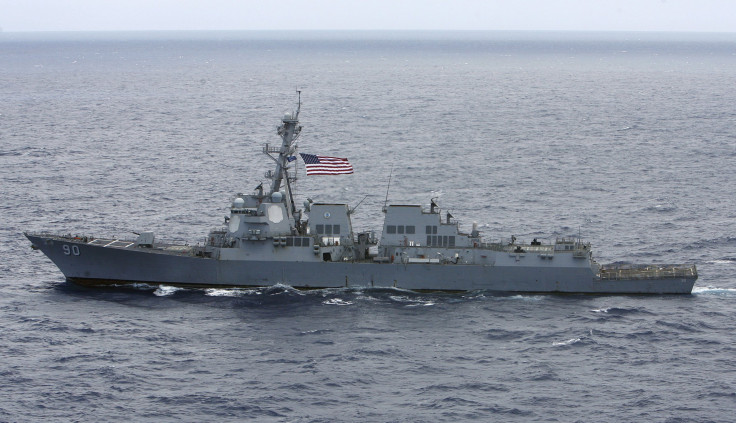US Navy Launches Clean Energy Initiative, But Biofuel Costs Limit Ships' Participation

The U.S Navy launched its first group of ships Wednesday that will be partially powered by biofuel, the first concerted effort to wean the U.S. military away from petroleum. It is also the first in attempts to create what naval planners are calling the "Great Green Fleet," which the Navy wants power using 50 percent alternative energy within four years.
Despite the price of oil plummeting over the last 14 months from more than $100 a barrel to around $28 Thursday, military leaders say the transition to costly biofuel will actually save lives on the battlefield.
“It gives us a strategic advantage,” Secretary of the Navy Ray Mabus said about efforts to move away from fossil fuel, according to an Associated Press report. "In 2010, we were losing too many Marines in convoys carrying fossil fuels to outposts in Afghanistan, and the prohibitive cost of oil was requiring us to stop training at home in order to keep steaming abroad, a dangerous and unsustainable scenario."
The US Navy is going green? Sounds like a good plan! https://t.co/aqyyl0BIPg
— Sonnet Socks (@SonnetSocks) January 20, 2016But because of prohibitive costs resulting from the fact that there is little competition in the biofuel industry, the Navy is using a 10 percent bio and 90 petroleum mix to keep expenses down. The costs and reliance on oil are likely to come down as competition in the biofuel industry grows. Biofuel sourced by the Navy is made from beef fat from Midwestern feedstock and manufactured by the California-based AltAir Fuels.
The Navy recently bought 77 million gallons of the 10 percent biofuel mix at $2.05 a gallon to fuel ships operating off the West Coast in 2016. As the percentage of biofuel increases, the higher the costs will be. Current congressional laws prohibit the Navy buying any biofuel that is not of a similar price to oil, which is getting cheaper.
Congress passed a law in 2012 after becoming outraged that the Navy spent $26 a gallon on pure biofuel for a demonstration. But not everyone agrees that the biofuel initiative will work even if the price comes down.
Critics, including environmentalists, say biofuel production is too expensive and any large-scale manufacturing that might bring the costs down could do more harm than good to the environment if it requires a lot of farmland, fertilizer and fuel to produce.
Retired Navy Capt. Todd “Ike” Kiefer, who has published a study on the Navy’s plan, said adding 10 percent biofuels into the mix will not help the environment. The Navy won't ever get “any meaningful quantities of cost-competitive biofuels,” he said.
© Copyright IBTimes 2024. All rights reserved.






















